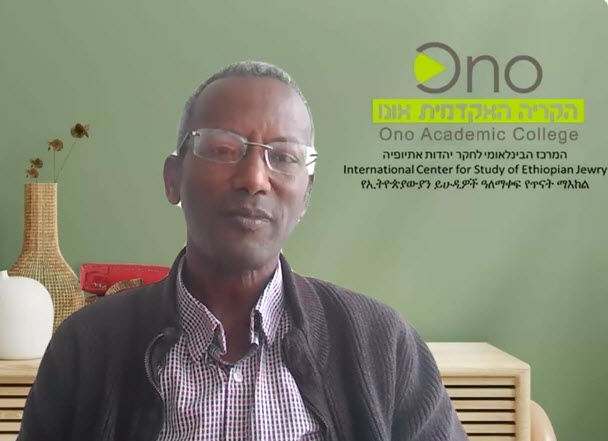Director of Ono’s Ethiopian Center Lectures at the Business School
As part of efforts to integrate the study of Beta Israel (Ethiopian Jewry) into all of Ono’s various programs, Rabbi Dr. Sharon Shalom, founder and director of Ono Academic College’s International Center for the Study of Ethiopian Jewry, presented a lecture entitled “Israeli society, between recognition and alienation, between identification and identity – a case study of the Ethiopian community” to the faculty of the Business School.
Rabbi Dr. Shalom opened his remarks, noting that he cannot ignore the fact that since October 7th, the Jewish people have been going through difficult times. Shalom serves as a casualty notification officer and in this context he said that, personally, he has had to go through very difficult experiences. However, he remembers that when he asked his grandfather in Ethiopia when would they be immigrating to Jerusalem, he would answer “tomorrow morning”. Even though they didn’t go up to Jerusalem, “tomorrow morning,” in the end they made it to Israel. This teaches that, pace Nietzsche, hope is not an illusion. Hope is a very basic thing for the Jewish people and for Beta Israel, the Ethiopian community, in particular.
The starting point of Rabbi Dr. Shalom’s lecture was the fact that many painful societal errors (including the sympathy expressed for Hamas by many populations around the world following the events of 7.10) stem from confusion between “recognition and alienation” on the one hand, and “identification and identity” on the other.
Prof. Avi Sagi distinguishes between “identification,” which refers to the way others perceive me, and “identity,” which is my personal life story. This corresponds to Kahneman’s System 1 which deals with “identification,” while System 2 deals with identity. Rabbi Sharon brought other examples of this dichotomy from many disciplines including Dr. Melanie Klein’s application to psychotherapy.
Rabbi Dr. Shalom noted that while both systems are critical, human society, including Israeli society, sometimes remains in the state of “identification” without reaching the state of “identity.” This phenomenon causes “alienation” instead of “recognition.”
Rabbi Dr. Shalom concluded saying that at Ono, he is happy to have found a place that understands the importance of identification and insists on reaching identification as well. This creates recognition and not alienation. On this basis he founded the International Center for the Study of Ethiopian Jewry. Rabbi Dr. Shalom said he looks forward to cooperating with the Business School on a multitude of topics in the future.







